Vlasotince, Serbia, October 2023 – “For me, school is a place where we learn new things, meet friends, and prepare for the world. Inclusion is important because we have students from vulnerable groups and members of the Roma national minority. In our school, you can’t see these differences; everyone is equal, spending time together, and teachers involve all students equally in class work. We, as a group, learn together,” explains fifteen-year-old Ljubica, an 8th-grade student at the 8 October Primary School in Vlasotince.
“The Learning Together project has helped teachers develop a better approach to students and get to know them better. My involvement in the project has made me stand out more among fellow students, teachers, and the school management,” says Ljubica. And she stands out as one of the best students, a member of the Student Parliament, and a peer educator. At the Summer School and in remedial classes, she helps students prepare for final exams and enroll in desired secondary schools. Ljubica has learned from experience that inclusion works best within a peer group that provides support and helps with the development of various intellectual potentials and skills that children will need later in life.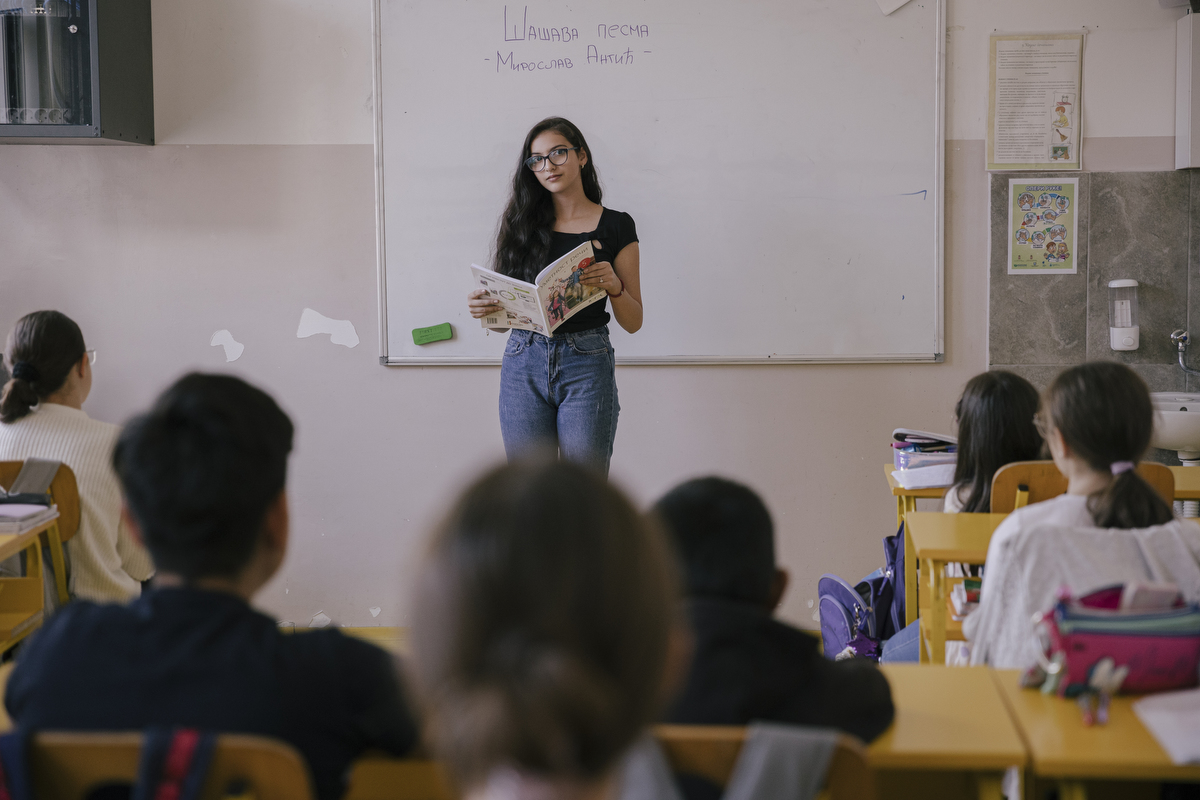
“Last year, I helped them learn chemistry and mathematics, and this year, I’m studying biology with them. We have workshops in nature, in the kitchen, and in the math classroom. We study through play, quizzes, and word association games,” says Ljubica. She is proud to be Roma and is the fourth generation in her family to attend one of the top five schools in terms of quality of education in Serbia.
"My father completed military school, my brother Jovan is now a second-year student at the Faculty of Mechanical Engineering in Nis," and my siste Natalija studies medicine in Nis" explains Ljubica.
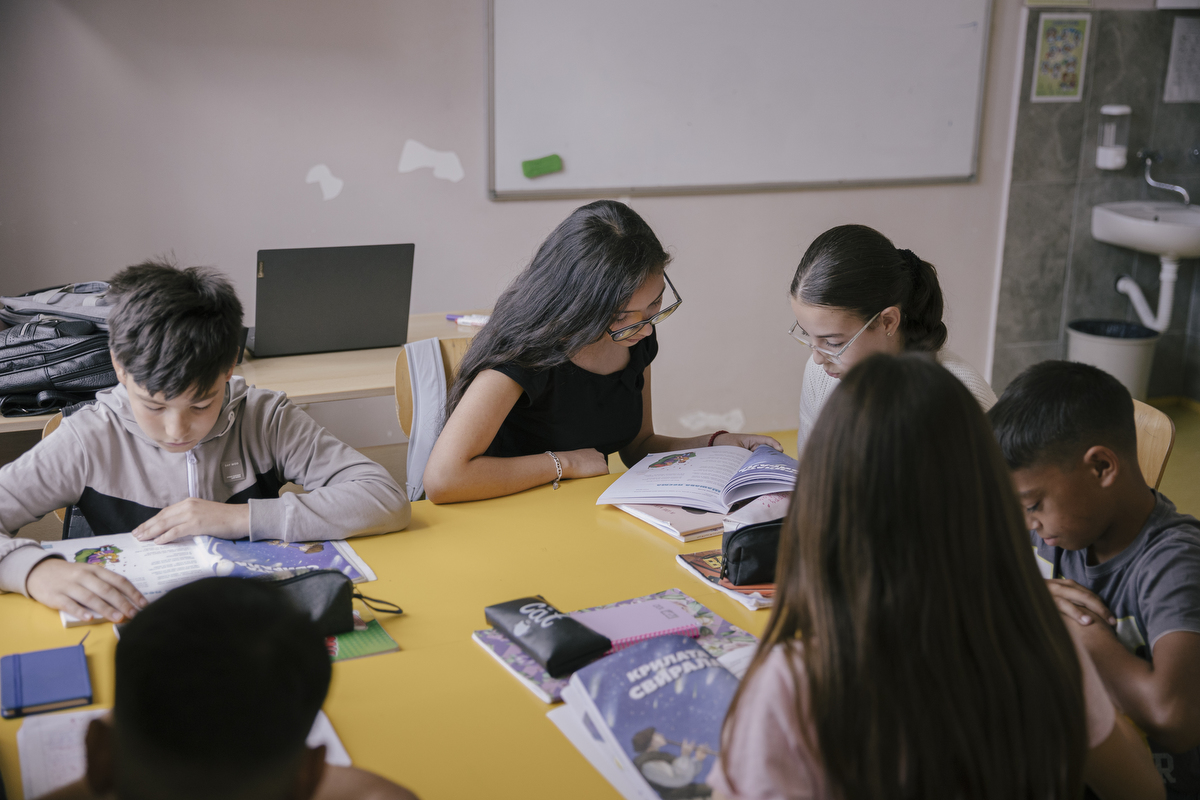
Although more and more Roma children and children with developmental disabilities are learning together with their peers, making friends, building their self-confidence, and developing a sense of belonging to the community, it is necessary to provide a greater degree of support to schools and teachers to achieve full inclusive education for all children. That is why the Ministry of Education and UNICEF, with the support of the European Union Delegation in Serbia, is implementing the project 'Enhanced Equal Access to and Completion of Pre-University Education for Children in Need of Additional Support in Education – Learning Together.' The project strengthens and develops additional capacities of schools, municipalities, and intersectoral committees, supports inclusive education through teacher training, the creation of a stimulating environment, and the procurement of equipment for easier learning. It also facilitates the development of new support mechanisms for students with developmental disabilities, such as resource centers and assistive technologies. Zaklina Djikic, coordinator of the Learning Together project at the 8 October Primary School, knows how important this is in practice.
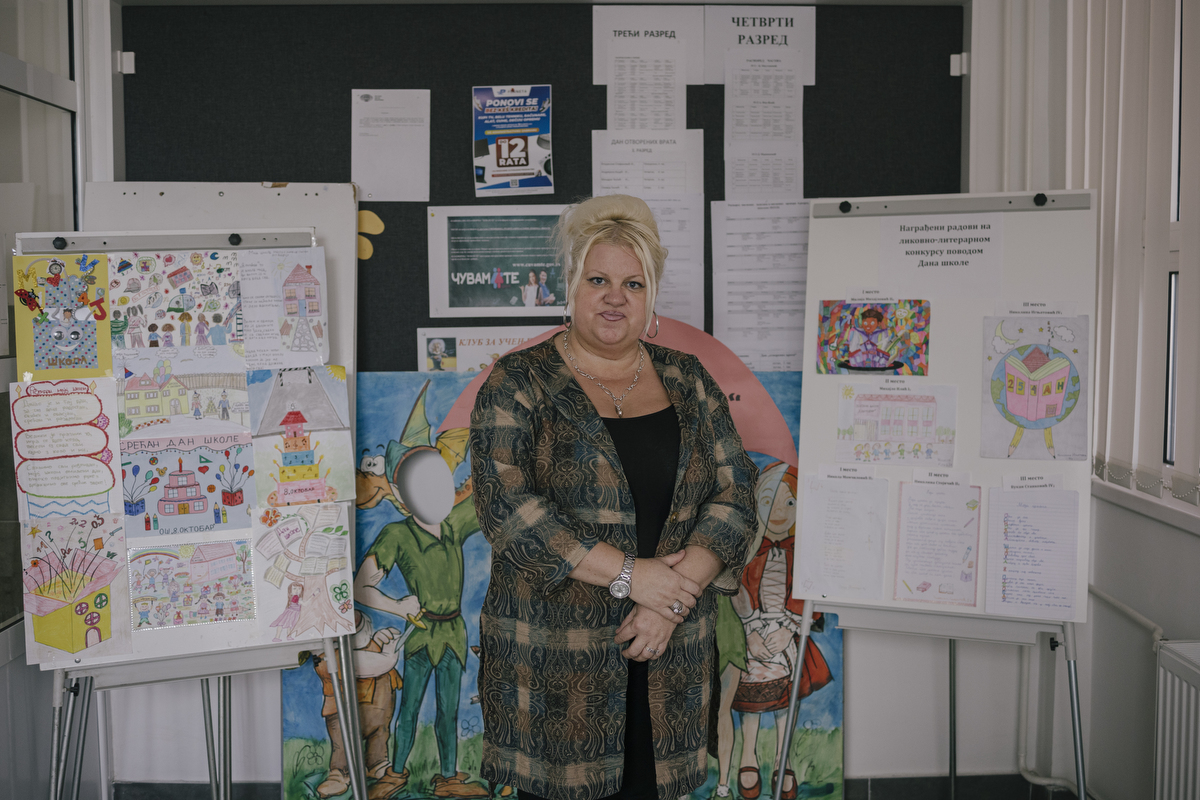
“We cannot always improvise or use a chalkboard for everything. We have to change, introduce innovations in teaching and learning, and empower students for lifelong learning. The innovative inclusive practice in our school is reflected in the fact that we constantly organize activities that involve all students,” she explains. The Learning Together project is challenging and requires a lot of work, but, as she says, it also yields multiple benefits for both students and teachers. “Teachers benefit from numerous trainings, children receive higher quality classes, and the school obtains funds to purchase assistive technologies such as headphones, computers, and adapted furniture to support the children”, says Zaklina. The school also purchased an LED table with multimedia content and frequently organizes art and literary contests, as well as plays that promote different cultures and traditions. “The school has 710 students, with one in five being of Roma nationality, and about 20 children facing developmental difficulties. Every child is included, even the best ones. That is why all our students receive equal support for their learning needs. Inclusion is something we simply do. Consequently, we don’t have children from the Roma population dropping out,” explains Zaklina. With decades of experience in education—first as a teacher and now as the assistant to the school principal—Zaklina knows how important it is to strengthen the professional competencies of all employees in the education sector. “You have to be well-informed to be equal to everyone and to be able to monitor the progress of students. We have had numerous training sessions within the project, such as innovative teaching, circles of friends, and teacher quality education, among others. Everything we learn in training, we implement in practice immediately,” she explains.
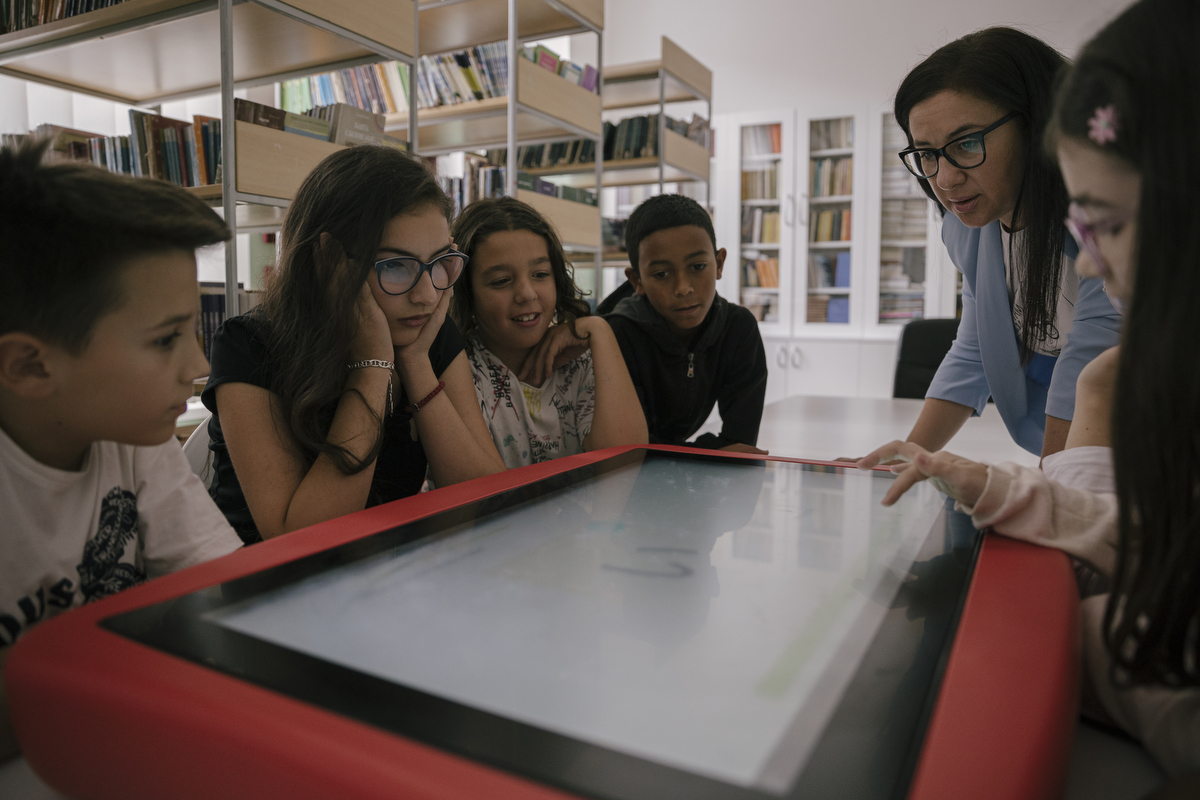
The 8 October Primary School, along with five other schools in Serbia, is a candidate for a model institution practicing innovative inclusive education. Another 60 schools are being empowered through education. “We have been in the project for a year now. We are constantly networking with other schools and exchanging experiences. We have a platform where we post everything we do. The horizontal exchange is at a very high level,” says Zaklina. All activities of the schools are closely monitored by project mentors. Blagica Zlatkovic, a professor of the psychology group of subjects at the Faculty of Education in Vranje, is responsible for providing professional support to the employees of the 8 October Primary School.
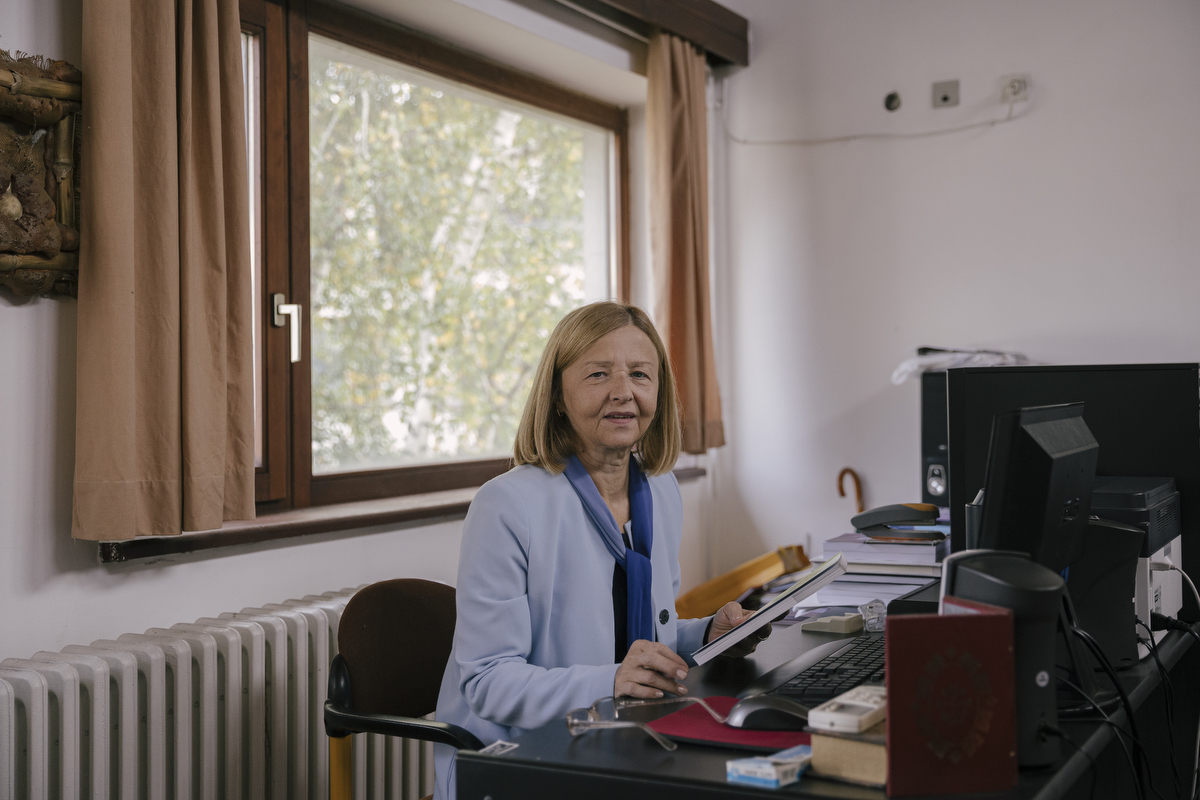
“Mentoring is a specific form of teacher education. Teachers work, and we act as 'critical friends'—questioning, suggesting, drawing attention, and asking if something could have been done differently. We aim to influence the reflection and consideration on the other side. The primary goal of this project is to enhance teachers' intention to improve their practice and capacities in working with children, colleagues, parents, and the local community,” says Blagica. "She believes that everything is possible in education, and that one can always do more and better. This is called 'pedagogical optimism.' “It is very important for schools never to cease this activity, to conduct regular reviews, check the effects, and engage with students and parents. When they receive feedback, it's crucial to always reconsider the next steps. This is a never-ending process,” explains Blagica. Inclusive education does not only pertain to the education sector; it also involves healthcare and social protection institutions, families, and the business sector. “There is some progress in terms of a better understanding of the concept of inclusion, rethinking of practices, and horizontal exchange. However, the concept of inclusion should be understood broadly because it implies providing support to everyone in that process,” says Blagica. Only through the combined efforts and commitment of all stakeholders is it possible to achieve full inclusion in education, the ultimate goal of the project. These combined efforts have already helped our Ljubica on her way to one day becoming a good doctor and a role model to others.
COPYRIGHT FOR ALL PHOTOS IN THIS ARTICLE: UNICEF SERBIA/2023/ZIVOJINOVIC



